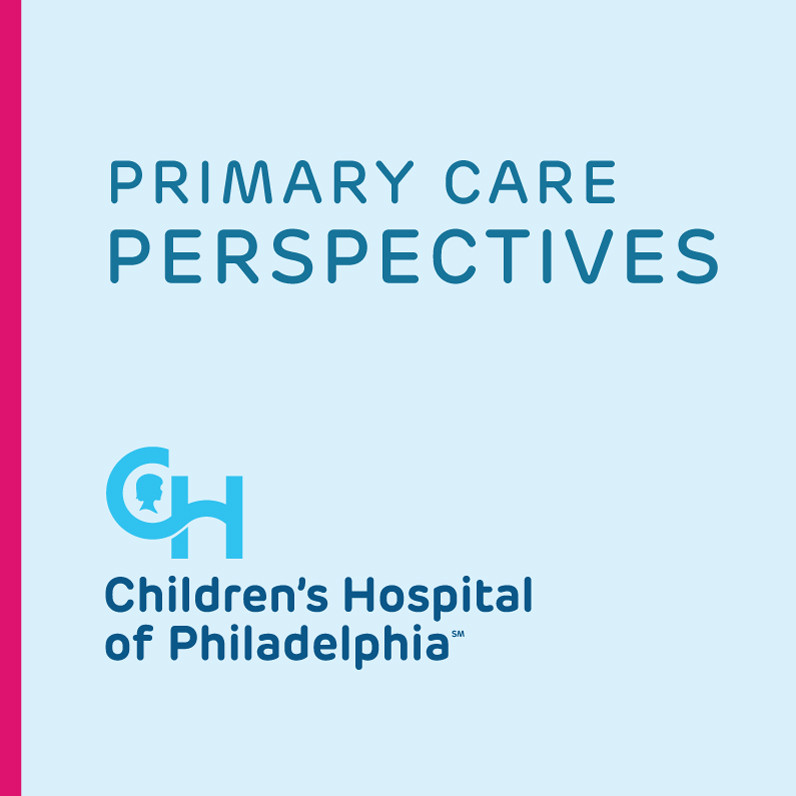
161K
Downloads
208
Episodes
Listen in as Katie Lockwood, MD, a primary care pediatrician at Children’s Hospital of Philadelphia, discusses hot topics in primary care with CHOP subject-matter-experts as they weigh in on issues affecting the daily practice of pediatricians. This podcast is for general informational and educational purposes only and is not to be considered as medical advice for any particular patient. Clinicians must rely on their own informed clinical judgment in making recommendations to their patients. ©2017 by Children’s Hospital of Philadelphia, all rights reserved.
Episodes
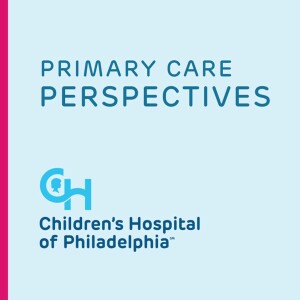
Wednesday Jun 14, 2023
Primary Care Perspectives: Episode 148 - Managing Sinus Infections
Wednesday Jun 14, 2023
Wednesday Jun 14, 2023
Have you heard that babies can’t get sinusitis because they don’t have sinuses? Not true! Mark Rizzi, MD, attending physician in the Division of Otolaryngology (ENT) at Children’s Hospital of Philadelphia, provides a useful review for primary care, including: an overview of sinus formation by age; allergic rhinitis and other pre-disposing factors; how to decide if a routine URI has become sinusitis and antibiotics are warranted (you don’t necessarily need to wait 10 days); neti pots, nasal steroids and other adjuvant treatments; complications to look out for, including unremitting headache for intracranial spread; prevention tips; when to refer to ENT or the ER; and more. This podcast is for general informational and educational purposes only and is not to be considered as medical advice for any particular patient. Clinicians must rely on their own informed clinical judgment in making recommendations to their patients. ©2023 by Children's Hospital of Philadelphia, all rights reserved.
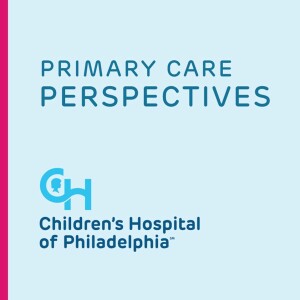
Thursday Jun 01, 2023
Primary Care Perspectives: Episode 147 - Somatic Symptom and Related Disorder
Thursday Jun 01, 2023
Thursday Jun 01, 2023
Somatic symptoms are real; we all experience them. One Canadian study found that somatic complaints account for more than 25% of all primary care visits. Samuel Neher, MD, pediatric hospitalist at the Children’s Hospital of Philadelphia, introduces a new clinical pathway for Somatic Symptom and Related Disorder (SSRD) that suggests a standard of care for these symptoms. Goals are to build empathetic rapport with patients and families; encourage somatic symptom treatment alongside diagnostic testing; and promote strong communication and collaboration among the interdisciplinary care team. This podcast is for general informational and educational purposes only and is not to be considered as medical advice for any particular patient. Clinicians must rely on their own informed clinical judgment in making recommendations to their patients. ©2023 by Children's Hospital of Philadelphia, all rights reserved.
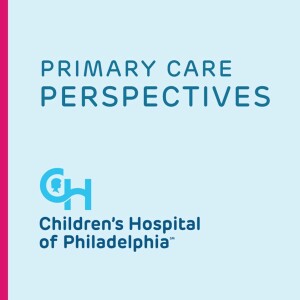
Tuesday May 09, 2023
Primary Care Perspectives: Episode 146 - Caring for Children in Foster Care
Tuesday May 09, 2023
Tuesday May 09, 2023
Each year in the U.S., more than 400,000 children are in foster care. Jennifer Keim, MD, MPH, primary care pediatrician at the Nicholas and Athena Karabots Pediatric Care Center of Children’s Hospital of Philadelphia, provides a review of important considerations in primary care for these vulnerable children, including: explanations of common terms, such as medical foster homes, resource parents, respite care, and more; the significance of placement instability and a trauma-informed approach to care; resources such as CHOP’s Fostering Care Program for outpatient assessment, and CASA volunteers; consent and confidentiality issues and how to sort through them; defining permanency, aging out and other outcomes and a review of national and local statistics; and more. Published May 2023. This podcast is for general informational and educational purposes only and is not to be considered as medical advice for any particular patient. Clinicians must rely on their own informed clinical judgment in making recommendations to their patients. ©2023 by Children's Hospital of Philadelphia, all rights reserved.
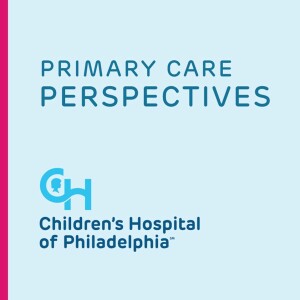
Wednesday Apr 19, 2023
Wednesday Apr 19, 2023
CHOP has a new primary care clinical pathway for the diagnostic evaluation of development delay and intellectual disability. Its co-authors, Elana Huang, MD, primary care pediatrician, CHOP Care Network, and Hana Alharbi, MBBS, MS, pediatric geneticist, University of Tabuk, Saudi Arabia (who did a fellowship at CHOP), review the pathway and how it might help a primary care practitioner, including information about: testing tiers; limits of newborn screening panels; non-genetic test recommendations; which subspecialties to refer to for certain symptoms; recommendations for next steps when encountering recognizable syndromes; and more. This podcast is for general informational and educational purposes only and is not to be considered as medical advice for any particular patient. Clinicians must rely on their own informed clinical judgment in making recommendations to their patients. ©2023 by Children's Hospital of Philadelphia, all rights reserved.
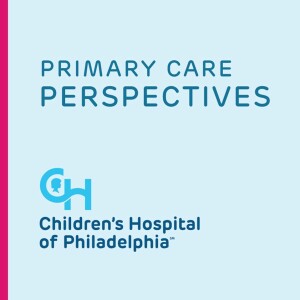
Wednesday Mar 29, 2023
Primary Care Perspectives: Episode 144 - Neighborhoods and Children’s Health
Wednesday Mar 29, 2023
Wednesday Mar 29, 2023
It’s estimated that 20 percent of variation in health outcomes is due to medical and healthcare system factors. Environment makes up a significant portion of the other 80 percent. Stephanie Mayne, PhD, MHS, epidemiologist and research scientist at PolicyLab at Children’s Hospital of Philadelphia, provides information to help primary care clinicians understand neighborhood-level social determinants of health, including: the roots of disparities in resources by neighborhood and how this affects children; specific neighborhood attributes that impact sleep and mental health, such as noise, violence, pollution, tree canopy and green space; suggestions for how to advocate for interventions; and more. This podcast is for general informational and educational purposes only and is not to be considered as medical advice for any particular patient. Clinicians must rely on their own informed clinical judgment in making recommendations to their patients. ©2023 by Children's Hospital of Philadelphia, all rights reserved.
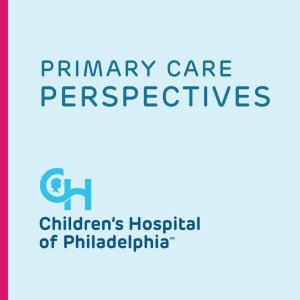
Monday Mar 13, 2023
Primary Care Perspectives: Episode 143 - Anxiety with Food Allergies
Monday Mar 13, 2023
Monday Mar 13, 2023
Lunch at school. A birthday party. Dinner out. For kids with food allergies, everyday activities can be fraught. Megan Lewis, MSN, RN, CRNP, nurse practitioner and program manager, Food Allergy Center at Children’s Hospital of Philadelphia, and James (JP) Senter, MD, a third-year resident at CHOP, review: the extent to which food allergies affect quality of life for children and families; oral immunotherapy; Scale of Food Allergy Anxiety (SOFAA); tips for talking to patients with food allergies about anxiety; how history of anaphylaxis can lead to anxiety; and more. This podcast is for general informational and educational purposes only and is not to be considered as medical advice for any particular patient. Clinicians must rely on their own informed clinical judgment in making recommendations to their patients. ©2023 by Children's Hospital of Philadelphia, all rights reserved.
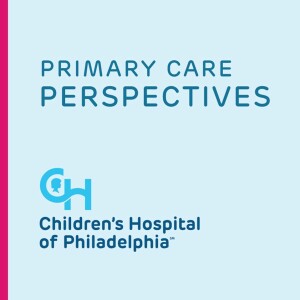
Monday Feb 20, 2023
Monday Feb 20, 2023
Children born with congenital heart disease (CHD), the most common birth defect in the U.S., are at greater risk for emotional and behavioral health concerns. Lyla El-Messidi Hampton, PhD, ABPP-CN, pediatric neuropsychologist and co-director of the Cardiac Kids Developmental Follow-up Program at CHOP, and Nicholas Seivert, PhD, psychologist in the Cardiac Center at CHOP, review the many reasons for increased mental health risk among children with heart defects, especially single ventricle patients, and provide information about: importance of early identification and intervention; ADHD meds for CHD patients; the higher rate of autism spectrum disorders in this population; the parental distress loop; screening in primary care, and red flags; places to refer at CHOP; and more. Published February 2023. This podcast is for general informational and educational purposes only and is not to be considered as medical advice for any particular patient. Clinicians must rely on their own informed clinical judgment in making recommendations to their patients. ©2023 by Children's Hospital of Philadelphia, all rights reserved.
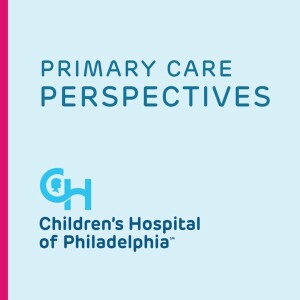
Monday Feb 13, 2023
Monday Feb 13, 2023
Are occipital headaches always cause for alarm? What if the headache is always on the right side or the left side? What is a thunderclap headache? Ishani Kumar, MD, pediatric headache fellow, Division of Neurology, Children’s Hospital of Philadelphia, provides a review to help primary care providers manage migraine headaches, including: tips for taking a headache history; red flags; distinguishing a migraine from a tension headache; explaining aura with headache; use of NSAIDs and triptans for pain; use of nutraceuticals for prevention; how to counsel patients about when improvements from treatment may begin (usually at least 8 weeks); when to refer for outpatient imaging and to neurology; when to send to the ER for urgent imaging or work-up; and more. This podcast is for general informational and educational purposes only and is not to be considered as medical advice for any particular patient. Clinicians must rely on their own informed clinical judgment in making recommendations to their patients. ©2023 by Children's Hospital of Philadelphia, all rights reserved.
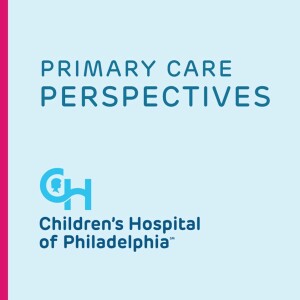
Friday Jan 27, 2023
Friday Jan 27, 2023
How can pediatricians move away from “diet culture” and encourage children and teenagers to have healthy relationships with food, exercise and their bodies? Two experts from the Eating Disorder Assessment and Treatment Program at Children’s Hospital, Eleanor Benner, PsyD, MA, psychologist, and Kerri Heckert, MS, RD, LDN, clinical dietician, discuss: suggestions for how pediatricians can talk about weight, nutrition and exercise without causing harm; socioeconomic factors that affect eating and activity; tips to offer parents, such as avoiding “fat talk”; encouraging kids to eat intuitively; limits to the usefulness of BMI; acknowledging weight bias in healthcare provider decision-making; explaining “body positivity” and “body neutrality”; red flags and what to do if there is suspicion for an eating disorder; and more. This podcast is for general informational and educational purposes only and is not to be considered as medical advice for any particular patient. Clinicians must rely on their own informed clinical judgment in making recommendations to their patients. ©2023 by Children's Hospital of Philadelphia, all rights reserved.
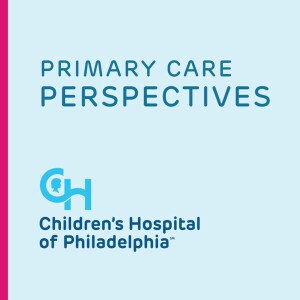
Tuesday Jan 10, 2023
Primary Care Perspectives: Episode 139 - Disability Awareness
Tuesday Jan 10, 2023
Tuesday Jan 10, 2023
Approximately one-quarter of Americans have disabilities. How can primary care pediatricians better support the health and goals of patients with disabilities? Danielle Barber, MD, PhD, attending physician, Division of Neurology, Children’s Hospital of Philadelphia, discusses: the World Health Organization’s International Classification of Functioning, Disability and Health (ICF); making care decisions based on the child’s wishes and goals, such as swimming; fostering the growth of a disability identity; presumptions in diagnosing everyday ailments in patients with disability; how community integration and the ability to function affect quality of life and perceived good health; changes in the office setting to improve the patient experience; suggestions for resources and “first steps”; and more. This podcast is for general informational and educational purposes only and is not to be considered as medical advice for any particular patient. Clinicians must rely on their own informed clinical judgment in making recommendations to their patients. ©2023 by Children's Hospital of Philadelphia, all rights reserved.
